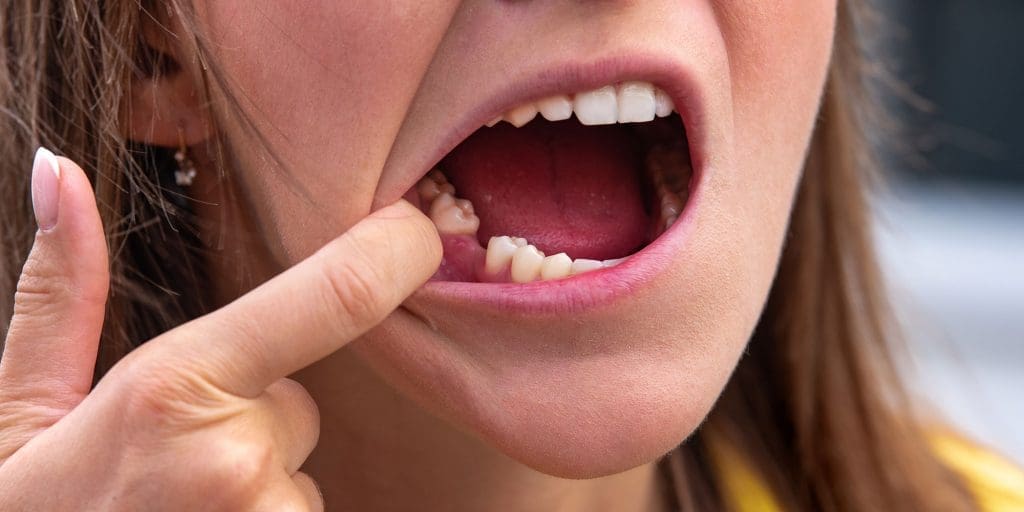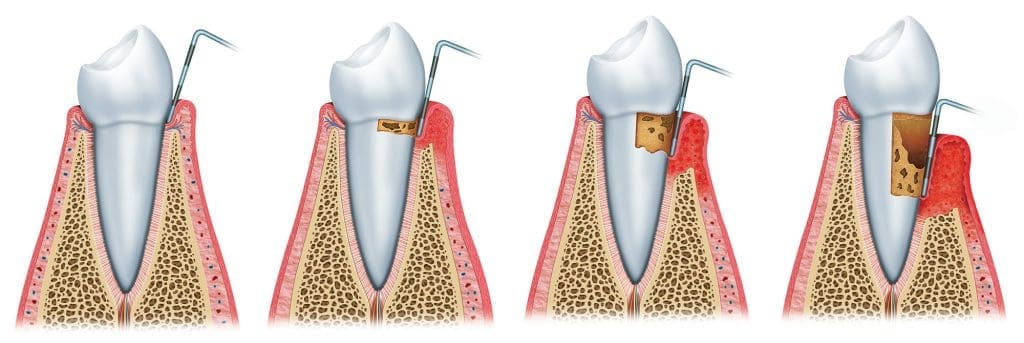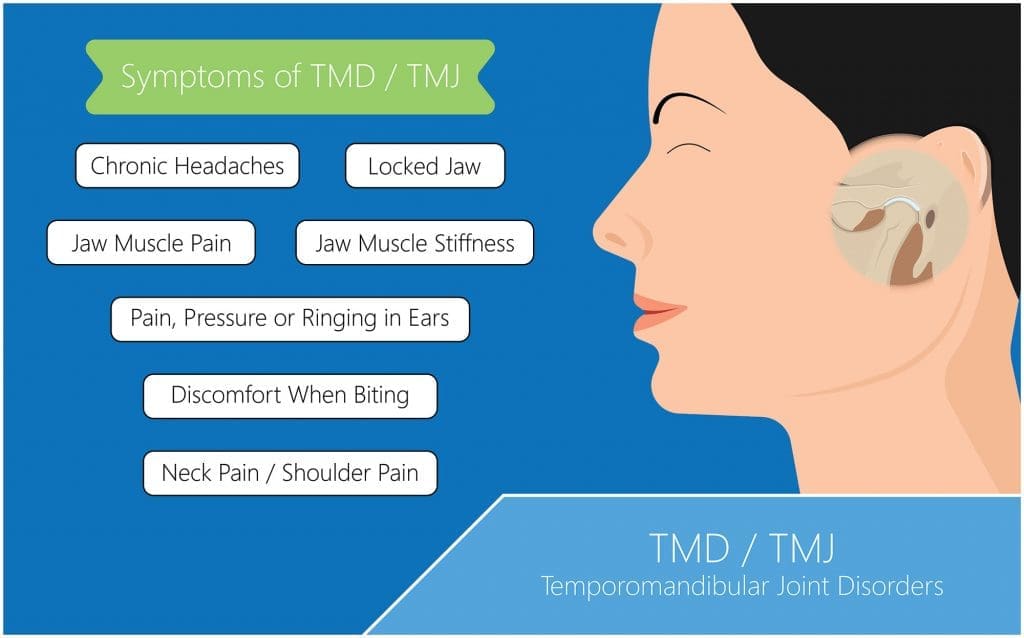Chronic facial pain is a persistent problem for many patients. It may result in psychopathologic symptoms such as depression as well as have effects on their digestive, respiratory, musculoskeletal, cardiovascular, endocrine, immune and central nervous systems. A large number of patients with chronic pain are acknowledging teeth loss as a cause for their increased pain, aggravation and suffering. Let’s look at chronic pain and dental health, common chronic pain conditions related to dental procedures and care and valuable tips to help you combat discomfort.
Dry mouth and tooth loss

A common side effect of medications consumed by pain patients is xerostomia, a problem of dry mouth. Patients who do not produce enough saliva are more prone to cavities. Patients with such problems are recommended to keep themselves hydrated.
If you are experiencing dry mouth and tooth loss, you can manage your condition by:
Chewing sugar-free gum
Chewing sugar-free gum will increase saliva production in your mouth. A good amount of saliva will keep the bad bacteria away. It can also help save you from embarrassing bad breath.
Limiting caffeine intake
Limiting your intake of caffeine will prevent your mouth from feeling dry. It can also help to keep your teeth from being stained.
Avoiding sugary and acid-rich foods
Foods rich in sugar and acids will slowly tear away the enamel, a substance that protects the teeth from damage. Stay away from such foods to help prevent tooth decay that can eventually lead to tooth loss.
Remember: if you are one of the millions of chronic pain sufferers who also struggle with dry mouth problems, it’s crucial to your health that you have proper dental hygiene habits and regular dental treatments. Avoid a constant consumption of sugary drinks, flavored chewing gum and hard candies. Overdoing these treats can lead to tooth decay that eventually weakens the tooth and results in tooth loss.
Periodontal disease

Periodontal disease is a major infection in the gums. If you have periodontal disease, a sticky substance forms on your teeth within a couple of hours of brushing. This gum disease is a result of bacteria accumulating on your gums and teeth.
If you do not stick to a consistent schedule of dental care and proper treatments, this disease can cause tooth loss. As the disease progresses, it gradually hampers the health of your bones and teeth. Symptoms of an infection include swollen and bleeding gums. These problems are the first sign of gingivitis, which is the earliest stage of periodontal disease. Loosening of teeth is a severe sign of periodontitis and is an advanced stage of the disease.
If you are experiencing periodontal disease, you can manage your condition by:
Maintaining a regular brushing schedule
Regular brushing at least twice a day will remove bacterial plaque from your teeth. It will also help to get rid of food debris that is unnoticeable to the naked eye.
Improving your diet
It’s important to limit sugary foods and carbohydrates. Replace these foods with at least 2 vegetables and fruits each day. Consume fiber-rich foods as well as those that naturally scrape plaque off your teeth such as apples and carrots.
Changing your medications
Certain medications like aspirin have the ability to thin your blood and make your gums bleed. It’s always a good idea to check with your health care team for a substitute of a medicine that you’re prescribed.
Temporomandibular disorder
Temporomandibular disorder (TMD) is a condition that upsets the temporomandibular joint and the adjoining muscles. These joints are right in front of the ears, so you can easily feel them when you open your mouth wide. When you suffer from TMD, your body experiences extreme pain. It can cause difficulty speaking or eating.
TMD is a common problem. Over 10 million Americans are affected every year. Some patients live with the disorder without having it treated until it becomes absolutely unbearable to get through each day. While for others, the problem stems from a trauma such as a blow to the head or face and neck area. Both of these types of patients can experience similar symptoms.
If you are experiencing TMD, you can manage your condition by:
Restricting jaw overuse
When you’re suffering from TMD, restrict singing, yelling and widening of the jaw. Avoid activities that result in pain and strain to your facial muscles.
Relaxing your jaw muscles
Physical and emotional tension aggravates most of the pain. Muscle relaxation techniques are a great way to relieve you of stressful situations.
Strengthening your facial muscles
Apply warm compresses and ice packs on areas where you feel the strain. Consume soft cooked foods rich in nutrition and eat lots of fruits.
Chronic pain and dental health have a clear relationship. Start inculcating healthier habits into your diet and daily wellness routine to get relief from frequent oral problems. Make sure you visit a dentist near you to check for a comprehensive and cost-effective treatment for your chronic pain syndrome.
How do you manage your chronic pain and dental health?
Tell us all about it in the comments below.
Are you on Facebook?



Some habits are especially harmful for dental health such as smoking, chewing tobacco, drinking soda or sugary drinks and so on. It is up to you to cut down or totally eliminate these from your diet if you want your teeth to be healthy.
It is advisable to get in touch with a dentist immediately if your gums are bleeding or swollen, there is persistent bad breath, any tooth feels loose; your teeth have become sensitive to hot or cold and so on. Good dental health is largely in your own hands.